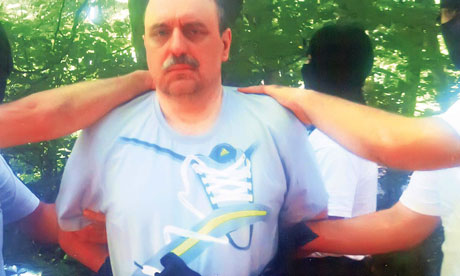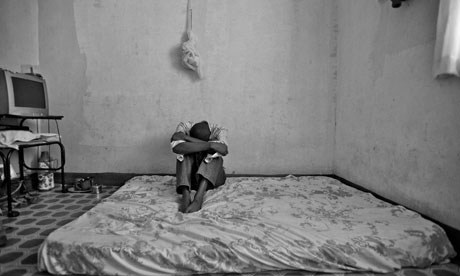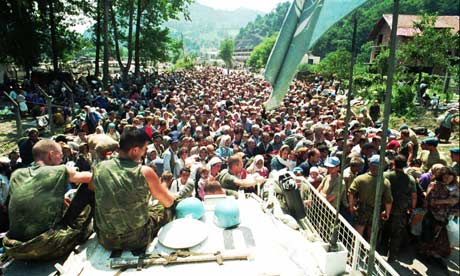 |
| "L-R: Ndiku Mutua, Jane Muthoni Mara and Wambugu Wa Nyingi claimed they were tortured." |
By Dominic Casciani
BBC Online, July 21, 2011
"Four elderly Kenyans have been told they can sue the Foreign Office for their alleged torture by British colonial authorities 50 years ago. The High Court said the group could seek damages over their treatment during the 1950s and 60s. Mr. Justice McCombe said the claimants had an 'arguable case' and it would be 'dishonourable' to block the action. Ministers say the UK government is not responsible for the actions of the colonial administration. The decision means that the government will have to defend accusations of torture, murder, sexual assault and other alleged abuses at a full damages trial in 2012. The four Kenyans, Ndiku Mutwiwa Mutua, Paulo Muoka Nzili, Wambugu Wa Nyingi and Jane Muthoni Mara, all in their 70s and 80s, say ministers in London approved systematic abuse in special camps. A fifth claimant has died since the action began. The High Court heard that Mr. Mutua and Mr. Nzili had been castrated, Mr. Nyingi was beaten unconscious in an incident in which 11 men were clubbed to death, and Mrs. Mara had been subjected to appalling sexual abuse. Mr. Justice McCombe said in his judgement there was 'ample evidence' to show there may have been 'systematic torture of detainees during the Emergency.'



















